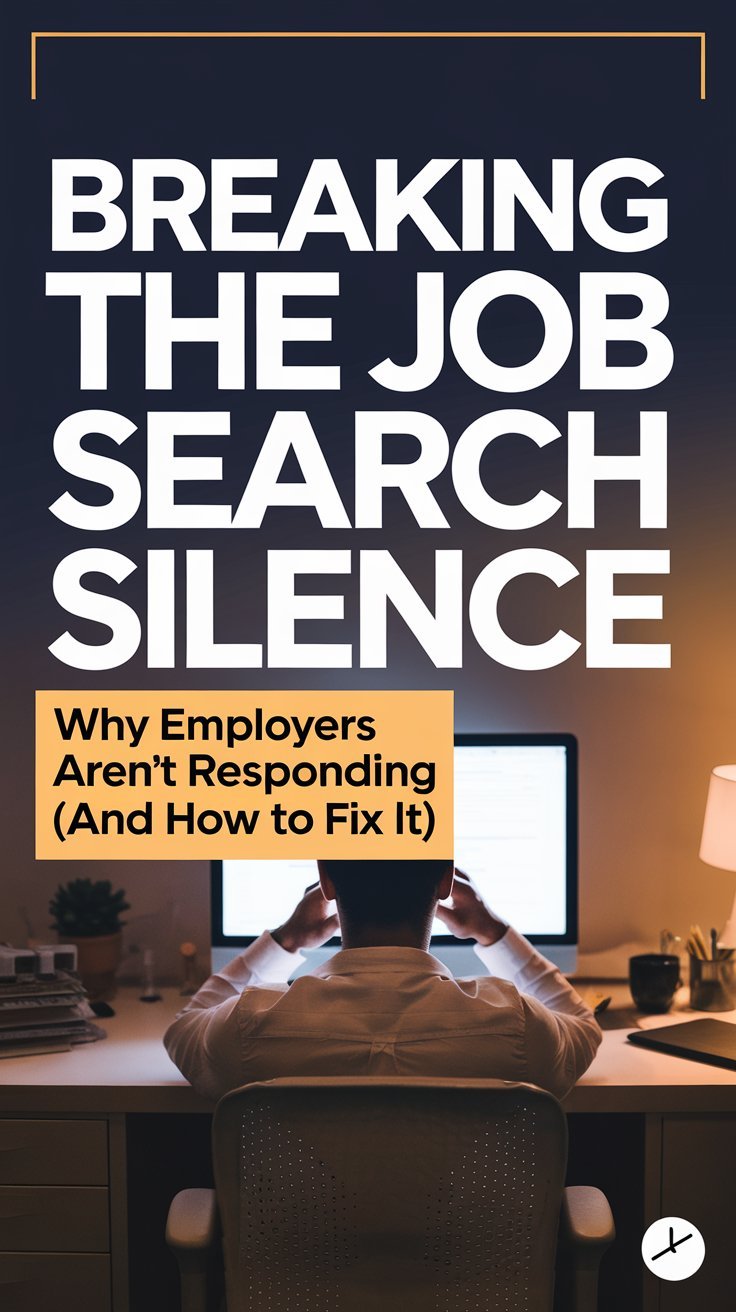Applying for jobs without getting responses can be frustrating and disheartening. You’re not alone in this experience – many job seekers face similar challenges. The key to breaking through the silence is understanding why your applications aren’t getting traction and taking strategic steps to stand out.
Job markets are competitive, and employers often receive hundreds of applications for a single position. Your resume might be getting lost in applicant tracking systems or simply not catching the eye of busy recruiters. Don’t lose hope though – with some tweaks to your approach, you can boost your chances of landing interviews.
Let’s explore some effective strategies to get your applications noticed and start hearing back from potential employers. We’ll look at how to tailor your resume, leverage networking, and follow up strategically to improve your job search results.
Join the DiscussionYour voice matters! Whether you have a burning question or a unique perspective, we'd love to hear from you. Engage with our community and enrich the conversation with your insights.
In this article:
- Understanding the Job Market
- Reviewing Your Resume
- Optimizing Your Cover Letter
- Networking for Opportunities
- How Important is Tailoring Applications?
- Following Up on Applications
- Staying Positive and Motivated
Understanding the Job Market

Let’s face it – the job market can be a wild ride. You’re not alone in feeling frustrated by radio silence after sending out applications. The landscape is constantly shifting, influenced by economic trends, industry demands, and technological advancements.
Right now, certain sectors are booming while others are shrinking. It’s crucial to stay informed about which industries are hiring and which skills are in high demand. Here’s a quick snapshot:
- Hot Industries: Technology, healthcare, renewable energy
- In-Demand Skills: Data analysis, digital marketing, cybersecurity
Companies are also changing how they hire. Many use Applicant Tracking Systems (ATS) to filter resumes before human eyes ever see them. This means your application needs to be optimized for both machines and humans.
Remember, timing is everything. Job openings can attract hundreds of applicants within hours of being posted. You’ve got to be quick and strategic. Set up job alerts, follow companies on LinkedIn, and be ready to pounce when opportunities arise.
Networking is more important than ever. Many positions are filled through referrals before they’re even advertised. Don’t shy away from reaching out to connections or attending industry events. Sometimes, it’s who you know that gets your foot in the door.
Reviewing Your Resume
Your resume is your ticket to an interview, so it’s crucial to get it right. Take a hard look at your current resume and ask yourself if it truly showcases your best self. Are you highlighting your most relevant skills and experiences? Make sure you’re not underselling yourself or burying important information.
Tailor your resume for each job you’re applying to. This means tweaking your skills and experience to match the job description. You’d be surprised how many applicants skip this step, but it can make a huge difference. Use keywords from the job posting to help your resume pass through applicant tracking systems.
Keep your format clean and easy to read. Stick to a professional font and use bullet points to break up text. Quantify your achievements where possible – numbers catch the eye and provide concrete evidence of your impact. Remember, you’ve got about 6 seconds to make an impression, so make every word count.
Optimizing Your Cover Letter

Your cover letter is your chance to shine before the interview. Don’t waste it with generic fluff. Tailor each letter to the specific job and company you’re applying to. Show you’ve done your homework.
Highlight your most relevant skills and experiences. Use concrete examples to demonstrate how you’ve added value in previous roles. Quantify your achievements whenever possible – numbers speak louder than words.
Keep it concise and punchy. Aim for 3-4 short paragraphs max. Use bullet points to break up text and emphasize key qualifications. Proofread carefully – typos are a fast track to the rejection pile.
End with a strong call to action. Express your enthusiasm for the role and company. Request an interview to further discuss how you can contribute. Remember, your goal is to spark their interest and land that meeting.
Networking for Opportunities
You’ve got to tap into the hidden job market. Start by reaching out to your existing contacts – former colleagues, classmates, and industry acquaintances. Let them know you’re on the hunt and ask if they’ve heard of any openings. Don’t be shy about it; most people are happy to help if you’re specific about what you’re looking for.
LinkedIn is your new best friend. Optimize your profile, join relevant groups, and engage with industry content. Connect with recruiters and employees at companies you’re interested in. Don’t just send a generic request – personalize it and mention why you’d like to connect.
Attend industry events, conferences, and meetups. These are goldmines for making new connections. Prepare your elevator pitch and bring business cards. Follow up with new contacts within 48 hours, referencing something specific from your conversation. Remember, networking is about building relationships, not just asking for favors.
How Important is Tailoring Applications?
Tailoring your job applications is crucial. You’re not just another faceless resume in the pile – you’re showing employers you’ve done your homework and care about their specific role. It’s like wearing the right outfit to an interview – it makes a great first impression.
Take the time to customize your resume and cover letter for each position. Highlight the skills and experiences that directly match what they’re looking for. Use the company’s language and mirror their values. This extra effort can really set you apart from other candidates.
Don’t forget about your online presence either. Update your LinkedIn profile to align with the jobs you’re targeting. A tailored application package, from resume to social media, shows you’re serious about the opportunity and increases your chances of landing an interview.
Following Up on Applications
You’ve sent out your resume, but crickets. Now what? Don’t just sit and wait. Following up shows initiative and keeps you on the employer’s radar.
Give it a week, then shoot a quick email. “Hey [Name], I’m checking in on my application for [Position]. I’m still excited about the opportunity and would love to discuss how I can contribute to your team.” Short, sweet, and to the point.
If you’ve got a contact’s phone number, a brief call can work wonders. Just keep it professional and concise. No one likes a pestering job seeker, so limit your follow-ups to once a week, max.
Pro tip: Use your follow-up to add value. Maybe share an industry article or mention a company achievement you’ve noticed. It shows you’re engaged and thinking about the role.
Remember, persistence pays off, but there’s a fine line. If you don’t hear back after 2-3 attempts, it’s time to focus your energy elsewhere. Keep applying, keep following up, and stay positive. Your perfect job match is out there!
Staying Positive and Motivated
Job hunting can be tough, but keeping your spirits up is crucial. Remember, you’re not alone in this journey. Many successful professionals have faced rejection before landing their dream roles.
Try setting small, achievable goals each day. Maybe it’s updating your LinkedIn profile or reaching out to a new contact. Celebrate these wins, no matter how minor they seem. You’re making progress!
Self-care is key during this process. Take breaks, pursue hobbies, and spend time with loved ones. It’s okay to step away from job applications now and then. You’ll return refreshed and ready to tackle the next opportunity.
Consider volunteering or freelancing while you search. It’ll keep your skills sharp and might lead to unexpected connections. Plus, it feels good to contribute and stay productive.
Surround yourself with supportive people. Join online communities or local networking groups for job seekers. Sharing experiences and tips can be incredibly motivating. You’ve got this!


